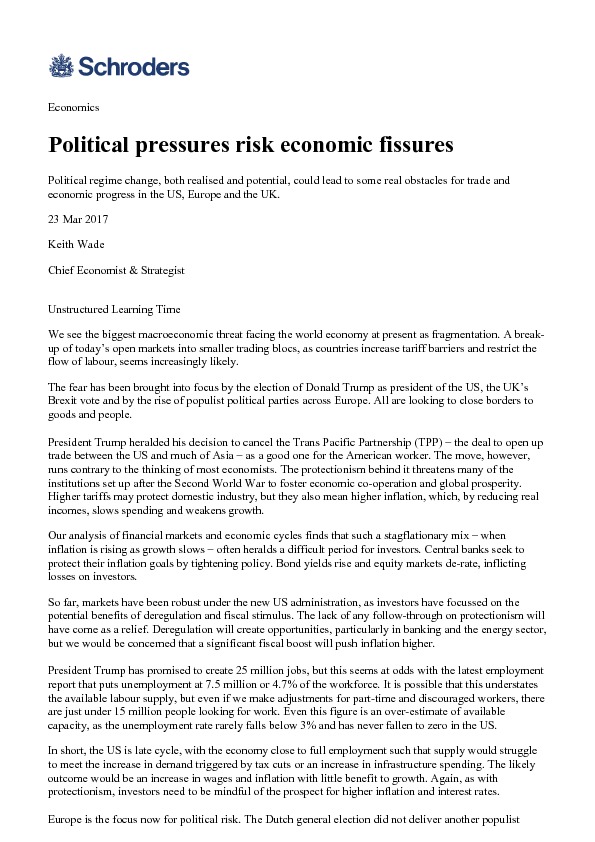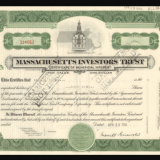Political pressures risk economic fissures

We see the biggest macroeconomic threat facing the world economy at present as fragmentation. A break-up of today’s open markets into smaller trading blocs, as countries increase tariff barriers and restrict the flow of labour, seems increasingly likely.
The fear has been brought into focus by the election of Donald Trump as president of the US, the UK’s Brexit vote and by the rise of populist political parties across Europe. All are looking to close borders to goods and people.
President Trump heralded his decision to cancel the Trans Pacific Partnership (TPP) – the deal to open up trade between the US and much of Asia – as a good one for the American worker. The move, however, runs contrary to the thinking of most economists. The protectionism behind it threatens many of the institutions set up after the Second World War to foster economic co-operation and global prosperity. Higher tariffs may protect domestic industry, but they also mean higher inflation, which, by reducing real incomes, slows spending and weakens growth.
Om dit artikel te lezen heeft u een abonnement op Investment Officer nodig. Heeft u nog geen abonnement, klik op "Abonneren" voor de verschillende abonnementsregelingen.





